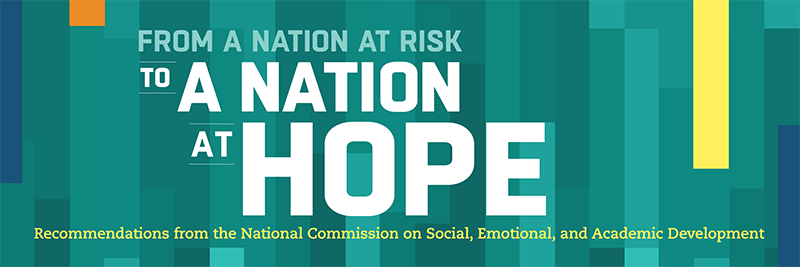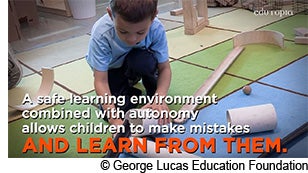
SAVE THE DATE: National Commission Release of Its Culminating Report on Jan. 15, 2019
The Commission will release its final report and accompanying recommendations in research, practice, and policy at a livestreamed event on January 15, 2019 from 8:30 a.m.-12:30 p.m. ET. The release will spotlight the voices of educators, students, community leaders, and scholars who are part of the growing movement to reshape learning and change lives across America.
We invite you to join us virtually as we officially release the Commission’s final recommendations; advance the movement to support the whole learner; and announce future commitments to bring the recommendations to life. RSVP here to view a livestream of the event and stay tuned for more details.
WATCH: New Videos Highlight Teaching Practice Grounded in Science of Human Development
 A new video series, to be released in early 2019, will showcase teaching strategies that are grounded in the science of learning and human development. Check out three preview videos from the “How Learning Happens” videos series, created by Edutopia in collaboration with the National Commission and the Science of Learning and Development Initiative.
A new video series, to be released in early 2019, will showcase teaching strategies that are grounded in the science of learning and human development. Check out three preview videos from the “How Learning Happens” videos series, created by Edutopia in collaboration with the National Commission and the Science of Learning and Development Initiative.
The collection features research insights from Linda Darling-Hammond, Commission Co-Chair and President and CEO of the Learning Policy Institute, and Pamela Cantor, MD, Commission Council of Distinguished Scientists member and founder and senior science advisor of Turnaround for Children, describing techniques that integrate social, emotional, and cognitive skills in classrooms across the country. The videos provide educators with evidence-based ideas for creating positive relationships with students, fostering an atmosphere of belonging, building students’ academic confidence, developing their foundational skills, and designing effective classroom cultures. View the videos here.
In Case You Missed It:
- A brief from the National Commission’s Youth Development Work Group, Building Partnerships in Support of Where, When, and How Learning Happens, describes the critical role youth development organizations play in young people’s growth and development and presents a framework for broadening our understanding of where, when, and how students learn. View a recording of the release event, and find the brief as well as examples and resources from the field here.
Staying in the Know
- Today marks the release of the survey, Respected: Perspectives of Youth on High School & Social and Emotional Learning, from Civic Enterprises and the Collaborative for Academic, Social, and Emotional Learning (CASEL). The report shares the perspectives of high school students and recent graduates on their school experiences. A key finding from the survey is that these students have identified social and emotional skills development as a critical missing piece of their education experiences. Read a forward from members of the National Commission’s Youth Commission and the full report here.
- A new book, Social and Emotional Learning in Out-of-School time: Foundations and Futures, defines and explains social and emotional learning in a variety of out-of-school contexts and highlights opportunities for integration and alignment with other fields (e.g., formal education). Edited by Elizabeth Devaney of Children’s Institute and Deborah Moroney of American Institutes for Research, the book features commentary from Commissioners Roger Weissberg and Karen Pittman and a chapter by Jennifer Brown Lerner, the Commission’s assistant director for policy and partnerships. For more information, click here.
- A new Assessment Guide from CASEL provides advice for choosing and using assessments of students’ social and emotional learning competency; shares 23 assessments now in use; and gives real-world examples of how educators are using these assessments.
- New resources from Transcend Education share insights from research about the many factors of a learning environment’s design that influence learning. They include a primer summarizing learnings from the science of learning and development, and design cards to help communities act on these insights.

